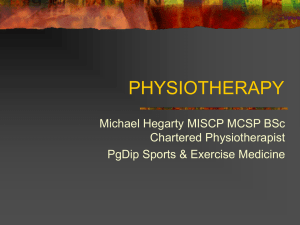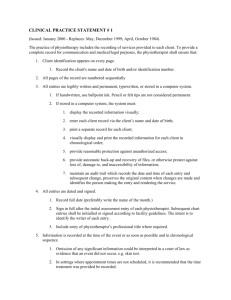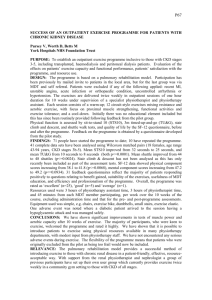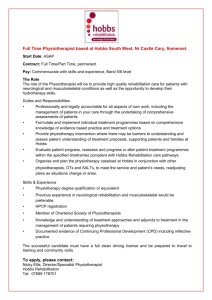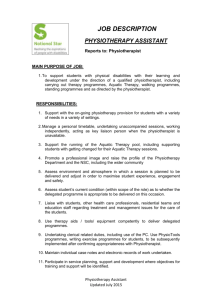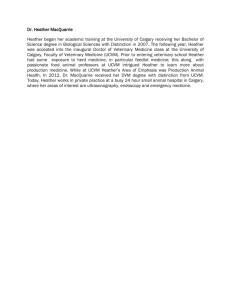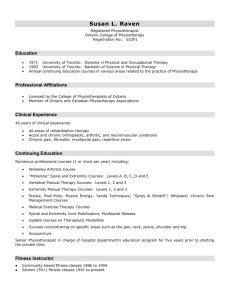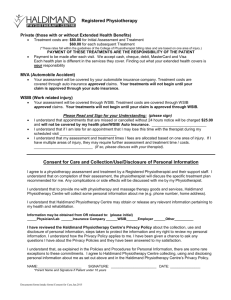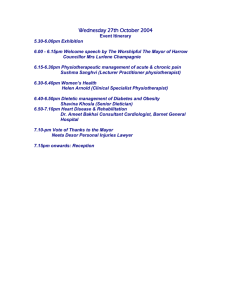Active Techniques
advertisement
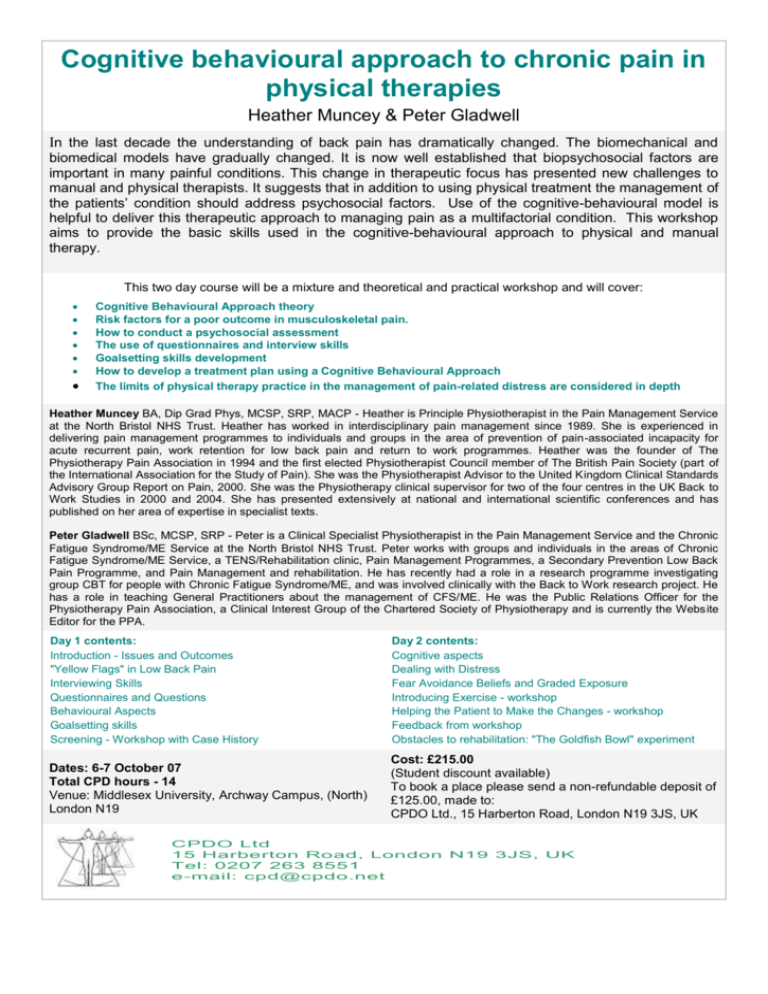
Cognitive behavioural approach to chronic pain in physical therapies Heather Muncey & Peter Gladwell In the last decade the understanding of back pain has dramatically changed. The biomechanical and biomedical models have gradually changed. It is now well established that biopsychosocial factors are important in many painful conditions. This change in therapeutic focus has presented new challenges to manual and physical therapists. It suggests that in addition to using physical treatment the management of the patients’ condition should address psychosocial factors. Use of the cognitive-behavioural model is helpful to deliver this therapeutic approach to managing pain as a multifactorial condition. This workshop aims to provide the basic skills used in the cognitive-behavioural approach to physical and manual therapy. This two day course will be a mixture and theoretical and practical workshop and will cover: Cognitive Behavioural Approach theory Risk factors for a poor outcome in musculoskeletal pain. How to conduct a psychosocial assessment The use of questionnaires and interview skills Goalsetting skills development How to develop a treatment plan using a Cognitive Behavioural Approach The limits of physical therapy practice in the management of pain-related distress are considered in depth Heather Muncey BA, Dip Grad Phys, MCSP, SRP, MACP - Heather is Principle Physiotherapist in the Pain Management Service at the North Bristol NHS Trust. Heather has worked in interdisciplinary pain management since 1989. She is experienced in delivering pain management programmes to individuals and groups in the area of prevention of pain-associated incapacity for acute recurrent pain, work retention for low back pain and return to work programmes. Heather was the founder of The Physiotherapy Pain Association in 1994 and the first elected Physiotherapist Council member of The British Pain Society (part of the International Association for the Study of Pain). She was the Physiotherapist Advisor to the United Kingdom Clinical Standards Advisory Group Report on Pain, 2000. She was the Physiotherapy clinical supervisor for two of the four centres in the UK Back to Work Studies in 2000 and 2004. She has presented extensively at national and international scientific conferences and has published on her area of expertise in specialist texts. Peter Gladwell BSc, MCSP, SRP - Peter is a Clinical Specialist Physiotherapist in the Pain Management Service and the Chronic Fatigue Syndrome/ME Service at the North Bristol NHS Trust. Peter works with groups and individuals in the areas of Chronic Fatigue Syndrome/ME Service, a TENS/Rehabilitation clinic, Pain Management Programmes, a Secondary Prevention Low Back Pain Programme, and Pain Management and rehabilitation. He has recently had a role in a research programme investigating group CBT for people with Chronic Fatigue Syndrome/ME, and was involved clinically with the Back to Work research project. He has a role in teaching General Practitioners about the management of CFS/ME. He was the Public Relations Officer for the Physiotherapy Pain Association, a Clinical Interest Group of the Chartered Society of Physiotherapy and is currently the Website Editor for the PPA. Day 1 contents: Introduction - Issues and Outcomes "Yellow Flags" in Low Back Pain Interviewing Skills Questionnaires and Questions Behavioural Aspects Goalsetting skills Screening - Workshop with Case History Day 2 contents: Cognitive aspects Dealing with Distress Fear Avoidance Beliefs and Graded Exposure Introducing Exercise - workshop Helping the Patient to Make the Changes - workshop Feedback from workshop Obstacles to rehabilitation: "The Goldfish Bowl" experiment Dates: 6-7 October 07 Total CPD hours - 14 Venue: Middlesex University, Archway Campus, (North) London N19 Cost: £215.00 (Student discount available) To book a place please send a non-refundable deposit of £125.00, made to: CPDO Ltd., 15 Harberton Road, London N19 3JS, UK CPDO Ltd 15 Harberton Road, London N19 3JS, UK Tel: 0207 263 8551 e-mail: cpd@cpdo.net
